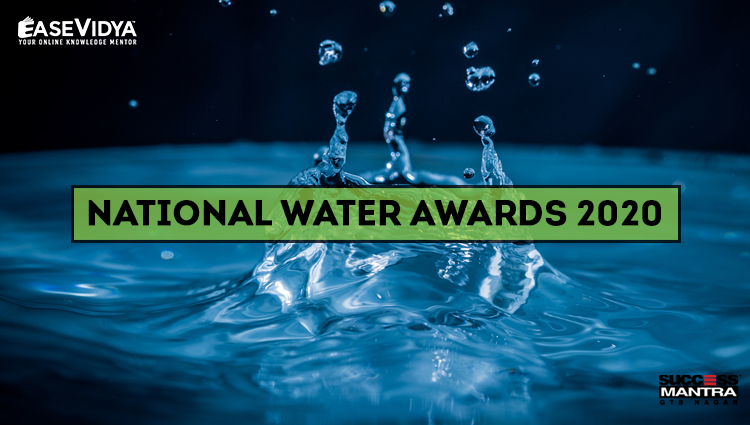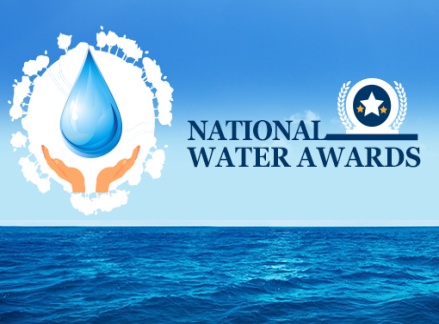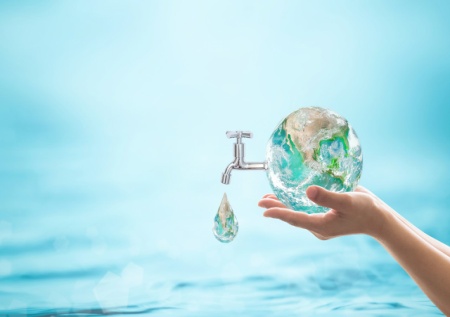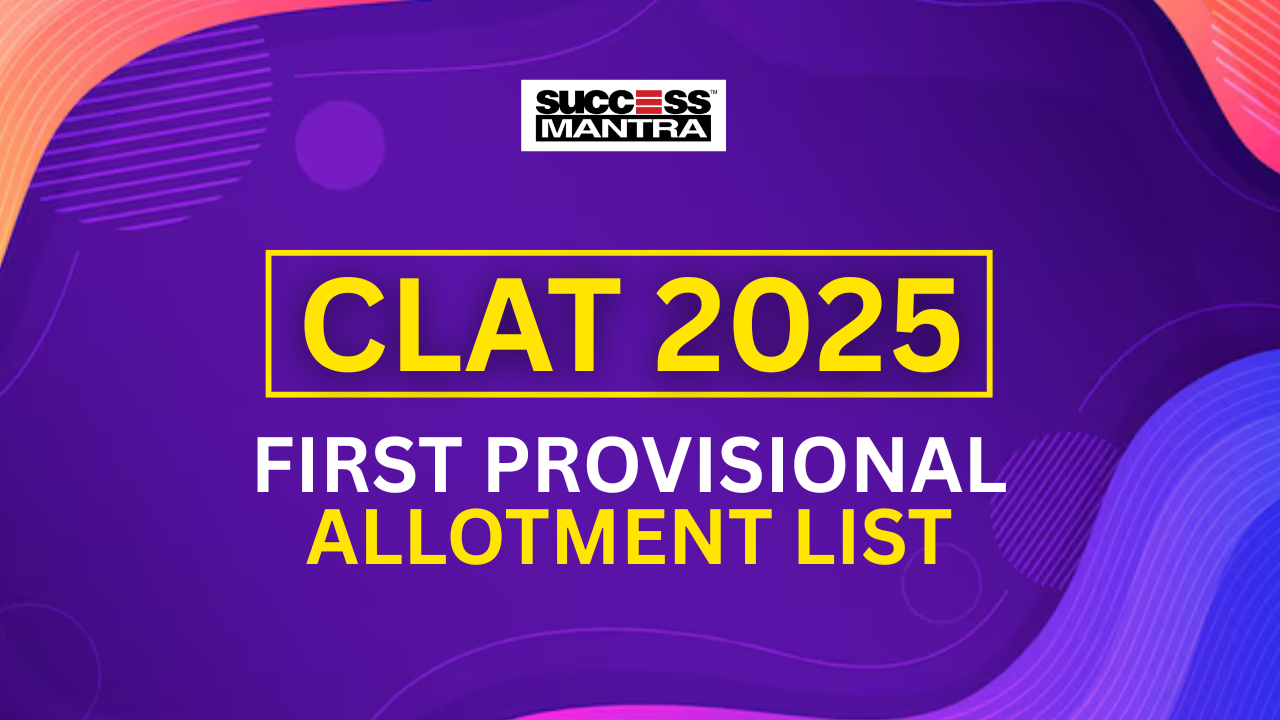
NATIONAL WATER AWARDS 2020
2ND NATIONAL WATER AWARDS 2020

The Department of Water Resources, River Development and Ganga Rejuvenation of the Ministry of Jal Shakti, is organizing the 2nd National Water Awards (NWAs) for the year 2019. On November 11, 2020, the Vice President Venkaiah Naidu announced the second National Water Awards. Tamil Nadu won the first place followed by Maharashtra and Rajasthan at second and third places respectively. Tamil Nadu also topped in all India level micro irrigation awards under the Pradhan Mantri Krishi Sinchayee Yojana and the state was followed by Karnataka and Gujarat in second and third places respectively.
BACKGROUND AND THE OBJECTIVES OF THE AWARDS
The awards are organised by the Department of Water Resources, River Development and Ganga Rejuvenation, Ministry of Jal Shakti. The NWAs were launched in 2007 for the first time along with the Ground Water Augmentation Awards and the winners in different categories are given a citation, trophy and cash prize. These focus on the good work and efforts made by individuals and organisations across the country, and the government’s vision for the path to ‘Jal Samridh Bharat’.
The main objectives of the awards include motivating individuals/organisations who are doing commendable work in the field of water resources conservation and management. To create awareness among the people about the importance of water and encourage them to adopt the best water usage practices. Start-ups, leading organisations and people can engage, deliberate and strengthen existing partnerships on issues concerning water conservation and management activities.
Need for Water Conservation and Management: Depletion of water resources due to overuse and decline in water supplies due to climate change is pushing India closer to the tipping point of water scarcity. Apart from these, several government policies especially pertaining to agriculture resulted in over-exploitation of water. These factors make India a water-stressed economy. In this context there is a need for water resource conservation and management.
INITIATIVES AND MISSIONS STARTED BY THE GOVERNMENT
MGNREGA FOR WATER CONSERVATION

In view of its ambitious target to provide tap-water connections to all rural households by 2024, the government will now focus on source sustainability through river rejuvenation and water harvesting works under the MGNREGA scheme. The huge workforce employed under the MGNREGA has enabled the government to introduce water conservation as a project under the Act. The Ministry of Rural Development has asked states to focus on works related to water conservation while preparing the MGNREGA labour budget for the 2020-21 financial year. Issuing guidelines for planning works and preparation of labour budget under the MGNREGA, the ministry has said there should be a “special focus on water harvesting and water conservation, including river rejuvenation”.
JAL KRANTI ABHIYAN
Union Minister of Water Resources, River Development and Ganga Rejuvenation Uma Bharti on 5 June 2015 launched nationwide Jal Kranti Abhiyan (campaign) from Jaipur, Rajasthan. The aim is to consolidate water conservation and management in the country through a holistic and integrated approach involving all stakeholders, making it a mass movement.
OBJECTIVE: The objectives of the Abhiyan is to strengthen grass root involvement of all stake-holders including Panchayati raj institutions and local bodies in the water security and development schemes like Participatory Irrigation Management (PIM). To encourage the adoption of traditional knowledge in water resource conservation and its management to utilize sector-level expertise from different levels in government, NGOs, citizen, etc. Enhancing livelihood security through water security in rural areas.
NATIONAL WATER MISSION
National Water Mission is one the eight missions of the Government of India which was launched under the National Action Plan on Climate Change (NAPCC) for combating the threats of global warming.
The main features of the National Water Mission includes Review of National Water Policy, Research and studies on all aspects related to impact of climate change on water resources including quality aspects of water resources, Expeditious implementation of water resources projects particularly the multipurpose projects with carry over storages, Promotion of traditional system of water conservation, Intensive programme for ground water recharge in over-exploited areas, Intensive capacity building and awareness programme including those for Panchayati Raj Institutions, urban local bodies and youths, Sensitization of elected representatives of over exploited area on dimensions of the problem and to orient investment under NREGA towards water conservation
The India's National Water Mission enshrined five goals which are:
- Comprehensive water data base in public domain and assessment of the impact of climate change on water resource,
- Promotion of citizen and state actions for water conservation, augmentation and preservation
- Focused attention to vulnerable areas including over-exploited areas
- Increasing water use efficiency by 20%
- Promotion of basin level integrated water resources management.
JAL JEEVAN MISSION
Benefits of Jal Jeevan Mission:
- Household pipeline water supply
- Clean and drinkable water
- Recharge of ground water level
- Better local infrastructure
- Less water-borne diseases
- Less water wastage
Prime Minister Narendra Modi announced during his Independence Day speech that the government will launch Jal Jeevan Mission to bring piped water supply to every house. He also urged the people to come forward and contribute in conserving water resources. PM Modi said that the government will spend more than Rs. 3.5 Lakh crore in coming years under the Jal Jeevan Mission (JJM). Jal Jeevan Mission will work under the Department of Drinking Water and Sanitation.
The Major objective of Jal Jeevan Mission is to provide piped water supply (Har Ghar Jal) to all rural and urban households by 2024. It also aims to create local infrastructure for rainwater harvesting, groundwater recharge and management of household waste water for reuse in agriculture.
According to the data published in various reports, about half of the country’s households don’t have access to piped water supply. It is an urgent requirement of water conservation in the country because of the decreasing amount of groundwater level. Therefore, Jal Jeevan Mission will focus on integrated demand and supply management of water at the local level.
CONCLUSION
People tend to neglect the importance of water conservation because in most places it is free of cost or charged nominally, so it is important for them to realise its importance and be aware of its degrading status. Initiatives like National Water Awards, along with the other government initiatives will help to create that awareness and motivate them to adopt the best water usage practices which will help India in becoming ‘Jal Samridh Bharat’.
QUESTIONS 1-5
Q.1 Which of the following personalities have announced the Second National Water Award to motivate individuals/ organizations in the field of water resources?
A. Narendra Modi
B. Gajendra Singh Shekhawat: ANSWER
C. Narendra Singh Tomar
D. Amit Shah
Q.2 Which of the following states have won the Second National Water Award in the category of All India level micro-irrigation?
A. Tamil Nadu: ANSWER
B. Maharashtra
C. Andhra Pradesh
D. Telangana
Q.3 What is the name of the Ministry which is formed by merging the earlier ministries i.e. Water Resources and Drinking Water and Sanitation?
A. Jal Jeevan Ministry
B. National Water Ministry
C. Atal Jal Shakti Ministry
D. Jal Shakti Ministry: ANSWER
Q.4 Which of the following missions was launched by then Union Minister of Water Resources, River Development and Ganga Rejuvenation Uma Bharti on 5 June 2015 for Water conservation?
A. Jal Jeevan Mission
B. Jal Shakti Mission
C. Jal Kranti Abhiyan: ANSWER
D. None of the above
Q.5 Which of the following statements is/are correct about the Jal Jeevan Mission launched in 2020?
A. Gajendra Singh Shekhawat announced on Independence Day that the government will launch Jal Jeevan Mission: ANSWER
B. The Mission launched to bring piped water supply to every house.
C. Piped Water supply should be provided to every household by 2024.
D. None of the above













0 Comment